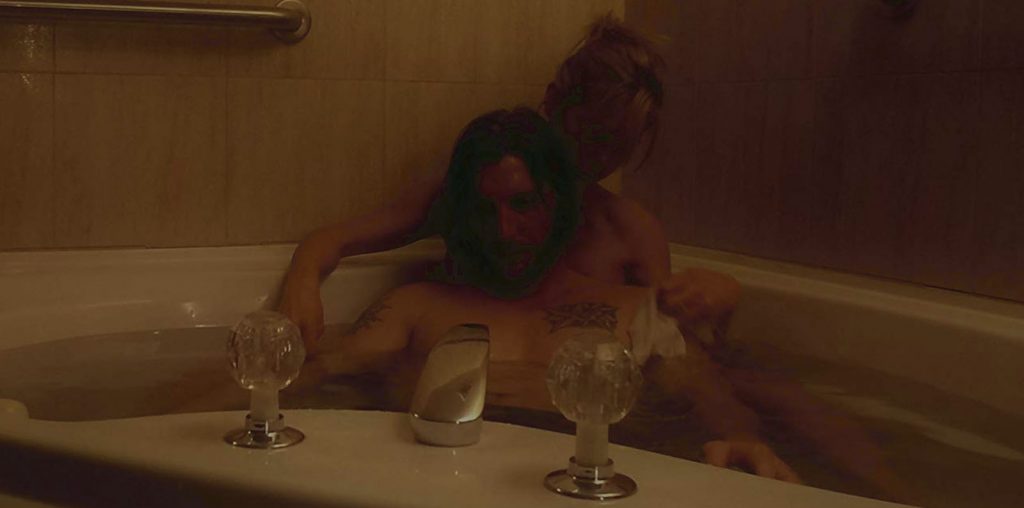
Every once and a while you come across a film that you know is quality, but despite hours of contemplation, you can’t really explain it to anyone. This is how I feel about “The 4th Dimension.” My fear is my interpretation of the message conveyed, or even the expression of a possible existence of a message, will not do the film its proper justice. By giving any theories I have about what means what, I might pigeon-hole the film when its grand openness to interpretation is part of its charm.
“The 4th Dimension” is about an introvert, possible genius named Jack (Louis Morabito) who works in the back of an antique shop. Obsessive-compulsive with a penchant for making tea and washing the dishes until the finish comes off, Morabito’s Jack is all slouch and slow, deliberate movement. This world is his, but it doesn’t seem to exist on the same plane as everyone else’s, more in the cracks between. One day, amidst his daily tea ritual, he gets a visitor to his home, asking him to fix a busted clock. A busted clock that, within hours of being handed over is requested to be returned, unfixed. Einstein’s unfinished unified field theory, past memories and Jack’s obsession with fixing the clock collide as the journey, both internal and external, plays out for us all to watch.
Morabito’s portrayal is one of subtlety and moody charm. Never is there a moment where you feel creeped out, he never allows the eccentricities to overwhelm to the point of being a turn-off. We can tell he’s a genius, we can see the weight of the world on his shoulders and we can feel for his inability to control events despite his determined efforts.
The film is gorgeous. Shot in super 16mm black and white with stark landscapes and fluid camera movement, the film establishes a unique world and pulls you in immediately. Like “Eraserhead” before it, you’re never sure if the world you’ve now entered is really there, is from the past or is yet to come. There is a bleakness to the imagery, but it’s not so much bleak as it is focused on the mundane. The little things have enormous prescence, and there’s a beauty there.
Coupled with the beauty of the film (why don’t people shoot on 16mm anymore, if THIS is what it’s capable of), the score enhances the viewing experience as a proper score should. Not overpowering, annoying or filled with repetition to the point where you think you should feel something solely because the music “went there” again, the score is the blanket of the film, keeping you comfortable while the dreamscape unfolds before you.
Which brings us to the final resolution, the what does it all mean. Honestly, it doesn’t matter. This is an inspired cinematic experience, regardless of how you feel it wraps up, what you think it’s saying. Drifting through this world with Jack, you’ve just got to let go and enjoy the slow burn.
